While memories of our COVID-19 lives slowly fade and life returns to a certain level of normalcy, we continue to struggle with the lasting effects of the pandemic. Mental well-being and a sense of thriving still evade many people. A recent Pew Foundation survey shows that at least 41% of American adults – and an even greater number (58%) of young adults (ages 18-29) – experience high psychological distress. Global statistics indicate that mental health struggles are a worldwide issue, with the United Nations reporting that almost 1 billion people worldwide experience some form of mental illness; about one in seven teenagers contribute to that statistic.
In the first year of the COVID-19 pandemic, rates of depression and anxiety increased by more than 25% globally, according to the World Health Organization. While we cannot minimize the influence of the pandemic, mental health issues among young adults have been on the rise since at least 2012. Teen depression rates doubled between 2010 and 2019 and continued to rise during the pandemic at about the same rate. Researchers have still not figured out exactly what led to this mental health crisis, but it is likely a collection of factors.
There are those who question the role of screen time and social media. It was around 2012 when the majority of Americans owned a smartphone and social media use hit a peak, but that is likely just one piece of the puzzle. It may be that other activities decreased along with increased screen time, including less time engaging in in-person socializing, reduced involvement in youth sports and, maybe most importantly, a significant reduction in the number of high school students getting eight or more hours of sleep. Consider that almost one-third fewer high school students reported getting sufficient sleep between 2007 and 2019.
So, while these trends existed prior to the pandemic, the increased feelings of loneliness and stress that accompanied the pandemic only accentuated mental health struggles. The rising rates of mental health issues in teens has translated to college-aged students experiencing all-time high rates of anxiety and depression.
All of these changes in the health status of young adults have left institutions, including colleges and military, with an unprecedented challenge: how to serve the needs of this age group. At Colorado State University, the efforts to address the so-called mental health crisis are threefold.
First, traditional clinical services have increased via resources such as the University Counseling Center, Center for Family and Couples Therapy, and CSU Health Network. Second, resilience resources are offered to help prevent stressful situations. The intent is to go beyond meeting the basic needs of students. For example, the Mindfully Managing Stress Skill Building Workshop is one option to provide support and opportunities less clinical in nature. It is an acknowledgment that traditional one-on-one counseling services will likely never keep up with the demand. Third, as an institution built on teaching, outreach, and research, there is course work, such as Risk and Resilience Across the Lifespan, and the on-campus Adolescent Wellness Lab to find the most effective ways to address needs of our students and other young adults.
Of course, traditional mental health services will continue to handle the lion’s share of mental health issues on campus, while other programs and practices allow us to address crises as they emerge. Indeed, these efforts allow students to build their resilience as they navigate difficult times.
Start taking a lead on your mental health today. Some seemingly small measures can go a long way toward mental wellness.
If there is one change you can make to your life, improve your sleep. Sleep deprivation is associated with negative consequences across almost every psychological diagnosis. Lack of sleep increases feelings of anxiety and distress in otherwise healthy individuals. The Center for Community Partnerships Sleep Services provides sleep services for CSU students, staff, and faculty, as well as community members in Northern Colorado.
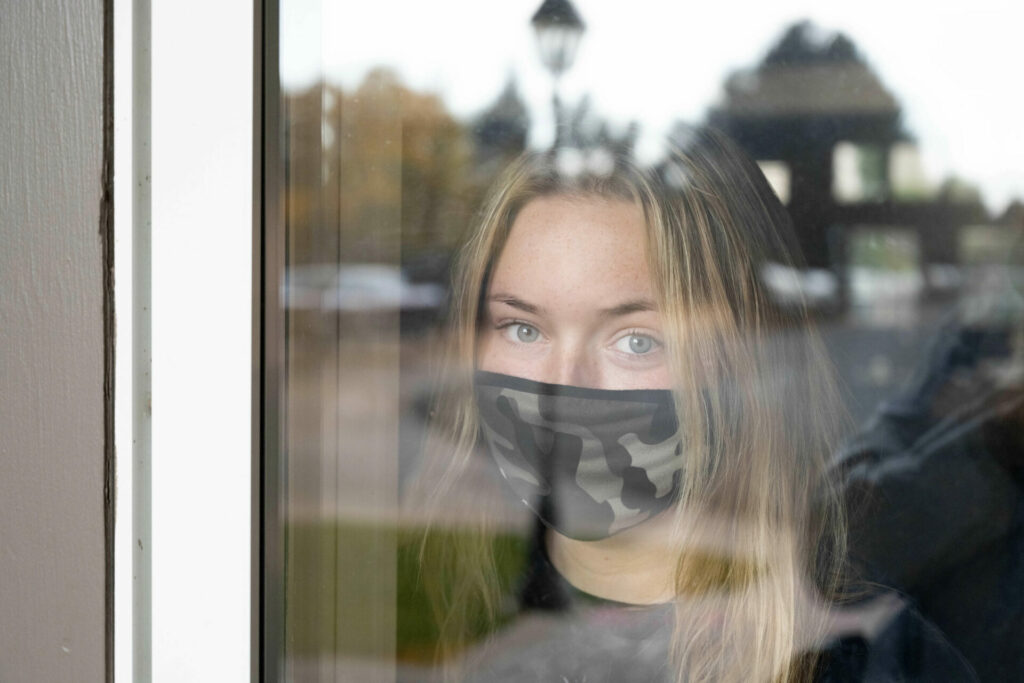
Diet is another often overlooked daily choice we make that has a profound effect on our mental and physical health. Recent research suggests that traditional comfort foods and drinks that contain the high sugar, fats, or alcohol that we crave are most likely to have a negative impact on our mental health. Ironically, people turn to such items when stressed. Visit a nutritionist or the Kendall Reagan Nutrition Center to learn more about recipes and healthy food choices.
And get your body and brain moving with exercise. Exercise is one of the best activities you can do to improve not only your overall health, but also your mental health specifically. Recent research suggests that exercise may be 1.5 times more effective than medication or some types of counseling. Want to know more about the ins and outs of optimizing your exercise routine? Enroll as a research participant at the Human Performance Clinical Research Laboratory or take a class at the Campus Recreation Center.
Another important change is to connect with other people. While screen time has been implicated in many studies as a possible source of stress and anxiety and a distractor from interpersonal activities, not all screen time is created equally. If online is your preferred mode of interacting, check out YOU@CSU to access a variety of resources developed for your overall school success and mental health. Or, if you are interested in connecting with others on campus and being part of a community that shares your interests, check out the more than 400 student organizations through the Student Leadership, Involvement, and Community Engagement program.
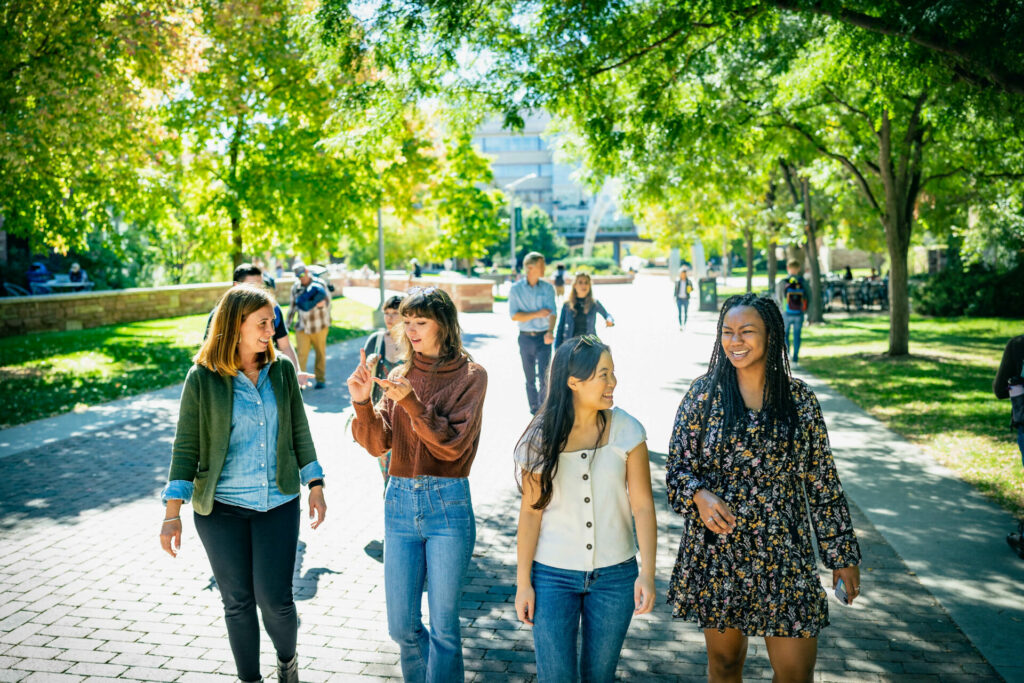
And while it may seem counterintuitive to busy students to add one more thing to their list, volunteering is associated with several benefits. The National Alliance on Mental Health website highlights a 2020 study that shows volunteering is associated with reducing stress, increasing happiness, developing confidence, and finding purpose. One example on campus can be found through the Campus Connections Therapeutic Youth Mentoring program, which is a high-impact, service-learning course and program serving local youth in the community.
Learning does not happen in a vacuum. Students’ emotional, social, and academic needs must be addressed to help them succeed in and out of the classroom. If there are struggles within the classroom, visit the Institute for Learning and Teaching for resources based on research focused on the science of learning, to find out about stress management techniques and to learn how to manage your time. Know that positive changes you want to see in your life will be unlikely to happen without you taking the first step. Start by being aware of where you are, where you want to be, and simply being present. Visit the CSU Center for Mindfulness for resources to help manage stress and improve your capacity to learn.
In the face of enormous challenges, there is a way up. It starts with individual action to make personal and lifestyle changes for the good and to connect with others in positive ways.
During difficult times, it’s easy to feel overwhelmed and isolated. Yet, in the face of enormous challenges, there is a way up. It starts with individual action to make personal and lifestyle changes for the good and to connect with others in positive ways. Mental wellness is aided by organizations that care, including CSU, which provides many resources and experts to help you gain control of your life situation.
Five Steps to Start Today for Your Path to Improved Mental Health
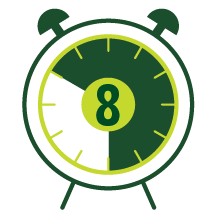
Make a relaxed bedtime routine.
End the day gently, turn off electronic media, set a consistent sleep schedule, and aim for at least eight hours of sleep.
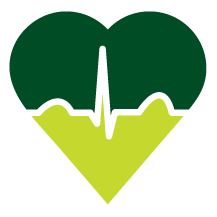
Exercise regularly.
Try new activities, alone or with others, to keep yourself motivated. Get fit.

Eat right.
Be mindful about how you fuel yourself daily. Eat more vegetables, fruit, fish, eggs, nuts, seeds, beans, legumes, and fermented foods. Avoid caffeine, nicotine, and alcohol late in the day.
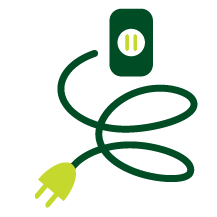
Unplug.
Designate a few one-hour blocks of screen-free time during the day. Switch devices to “do not disturb” one hour before bed until wake-up time.

Mark progress.
Make a priority list of the changes you want to see in your life and then audit yourself with a weekly tracking sheet. Use it to make the changes you want to see for your future.
Deana Davalos is a licensed psychologist and professor in the cognitive neuroscience program in the Department of Psychology in the College of Natural Sciences. Illustrated icons by Wendy Brookshire, CSU Marketing & Brand Management.